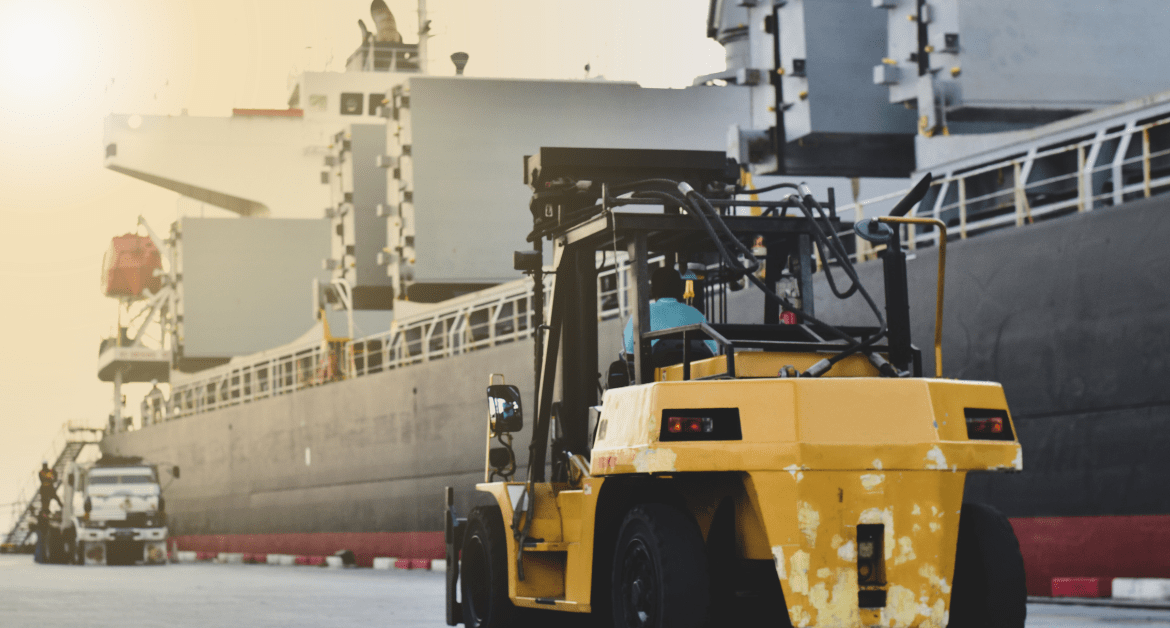
Cargo Loading and Unloading, Ecommerce businesses rely on efficient cargo loading and unloading to get products to customers quickly. Understanding cargo procedures and best practices helps streamline fulfillment. This article will examine cargo loading/unloading for e-commerce, outlining key concepts, challenges, and solutions.
What is cargo?
Cargo refers to goods transported by air, sea, rail, or road. For e-commerce, cargo usually means packages and parcels being shipped to customers. These include everything from small envelopes to large pallets of inventory. Managing cargo is crucial for e-commerce order fulfillment and delivery.
What is cargo loading and unloading?
Cargo loading refers to the process of moving packaged inventory and orders onto a transport vehicle for shipment. This includes hand loading as well as using equipment like forklifts, pallet jacks, and conveyor belts. Cargo is secured to prevent shifting during transit.
Unloading reverses the process at the destination, safely removing cargo from the vehicle for continued transport or final delivery. Efficiency in both loading and unloading is critical for on-time customer delivery.
Cargo loading and unloading procedures
Cargo loading and unloading processes can vary by transport method, but involve common procedures:
- Planning – choose a loading order based on the delivery route, weight distribution, size, etc. Create manifests detailing each shipment.
- Equipment preparation – inspects and prepares equipment like pallet jacks, forklifts, and conveyors prior to use.
- Staging – have inventory and orders ready in pre-sorted areas for efficient loading.
- Loading – bring items to the transport area in planned order. Load and stack items securely to prevent shifting.
- Documentation – record details for each loaded cargo unit. The driver confirms manifest matches the load.
- Unloading – reverse loading procedures, confirming manifests, and removing items with care.
- Inspection – note any damage that may have occurred in transit and file claims if needed.
- Continue transport – move unloaded cargo to the next stage whether further ground transport, shelves, or final delivery.
Cargo loading and unloading challenges
E-commerce businesses can face various challenges when loading and unloading high volumes of cargo:
- Space constraints – Loading docks and warehouses may lack needed space during peak volumes.
- Labor intensive – Loading/unloading by hand is time-consuming and physically demanding.
- Inventory accuracy – Mistakes can happen when handling large numbers of shipments.
- Damaged goods – Impacts from shifting cargo or mishandling can damage items.
- Delayed transport – Inefficient loading/unloading leads to delays down the delivery chain.
- Safety hazards – Loading procedures pose risks like strained muscles, forklift accidents, etc.
Read: LCL Shipping Helps Small Businesses Go Global
Cargo loading and unloading best practices
Several best practices can help e-commerce companies overcome cargo challenges:
- Use automated systems like conveyors and robotic arms to reduce manual labor.
- Pre-plan loading orders, and transport routes, and have all equipment/staff ready for maximum efficiency.
- Implement tracking procedures like barcodes and digital manifests to prevent inventory errors.
- Train all staff on proper handling procedures to prevent damaged goods.
- Load efficiently with care to weight distribution, stable stacking, and securing cargo.
- Inspect vehicles, cargo, and equipment regularly to identify issues quickly.
- Have contingency plans in place for potential loading/unloading delays or problems.
How Universal Relocations helps e-commerce businesses with their fulfillment process
For e-commerce companies struggling with order fulfillment and cargo loading, specialized logistics services like Universal Relocations can help. They offer complete solutions for warehousing, inventory management, order processing, and shipping.
Universal’s trained staff handles cargo loading and unloading efficiently using both manual labor and automation. Their facilities are strategically located near key transport hubs for fast dispatch to customers across the country.
By outsourcing fulfillment logistics to Universal Relocations, e-commerce businesses can focus their efforts on sales, marketing, and product development rather than becoming experts at shipping logistics. This allows online retailers to scale up quickly to meet customer demand.
Partnering with a third-party logistics provider lets e-commerce companies deliver orders quickly and reliably using best-in-class cargo solutions. Fulfillment centers with optimized processes, tracking systems and skilled staff enable on-time cargo loading/unloading for faster deliveries. As an e-commerce business grows, the right logistics partner can ensure they have the capacity to get their products efficiently from warehouse shelves into the hands of waiting customers.

 800-13-7356
800-13-7356
